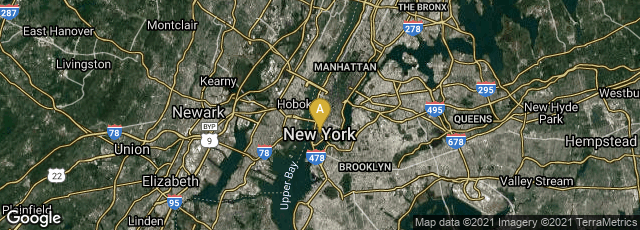

A: Manhattan, New York, New York, United States
On January 4, 2014 The New York Times published an opinion piece entitled "The Loneliness of the Long-Distance Reader, by Colin Robinson, a veteran of traditional publishing who in 2009 founded a "digital upstart" company to attempt to adapt to the radical changes that occurred as a result of digital books and the Internet. This I quote in full:
“TO read a novel is a difficult and complex art,” Virginia Woolf wrote in a 1925 essay, “How to Read a Book.” Today, with our powers of concentration atrophied by the staccato communication of the Internet and attention easily diverted to addictive entertainment on our phones and tablets, book-length reading is harder still.
"It’s not just more difficult to find the time and focus that a book demands. Longstanding allies of the reader, professionals who have traditionally provided guidance for those picking up a book, are disappearing fast. The broad, inclusive conversation around interesting titles that such experts helped facilitate is likewise dissipating. Reading, always a solitary affair, is increasingly a lonely one.
"A range of related factors have brought this to a head. Start with the publishing companies: Overall book sales have been anemic in recent years, declining 6 percent in the first half of 2013 alone. But the profits of publishers have remained largely intact; in the same period only one of what were then still the “big six” trade houses reported a decline on its bottom line. This is partly because of the higher margins on e-books. But it has also been achieved by publishers cutting costs, especially for mid-list titles.
"The “mid-list” in trade publishing parlance is a bit like the middle class in American politics: Anything below it is rarely mentioned in polite company. It comprises pretty much all new titles that are not potential blockbusters. But it’s the space where interesting things happen in the book world, where the obscure or the offbeat can spring to prominence, where new writers can make their mark.
"Budgets have been trimmed in various ways: Author advances, except for the biggest names, have slumped sharply since the 2008 financial crash, declining by more than half, according to one recent survey. It’s hard to imagine that the quality of manuscripts from writers who have been forced either to eat less or write faster isn’t deteriorating. Meanwhile, spending on editing and promotion has also been pared away.
"Things don’t get better after the book leaves the publisher. Price cutting, led primarily by Amazon, has reduced many brick-and-mortar bookstores to rubble, depriving readers of direct interaction with booksellers. Despite some recent good news, the number of independents has been halved in the last two decades, and the chain stores that surviveincreasingly employ part-time, unskilled staff.
"The decline in libraries weakens another vital prop for readers. Librarians, described by the novelist Richard Powers as “gas attendant[s] of the mind,” saw a national decrease in their numbers of nearly 100,000 over the two decades to 2009. Two-thirds of public librariesreported flat or decreasing budgets in 2012.
"Then there is today’s increasingly rare bird, the professional book reviewer. Stand-alone book sections in major newspapers such as The Los Angeles Times and The Washington Post have disappeared. The New York Times Book Review is now just a third of the length it was in its 1970s heyday. Online reviews like The Los Angeles Review of Books and The New Inquiry are striving to fill the gap. But their rates of pay, predictably, do not rival those at the more established publications they are replacing. Cyril Connolly caustically described the book reviewer as having “a whole-time job with a half-time salary,” a job “in which the best in him is generally expended on the mediocre in others.” Today, it’s more of a part-time job with no salary.
"This variety of channels for the expert appraisal of books has been replaced with recommendations thrown up by online retailers’ computers. But as with so much of the Internet, the nuance and enthusiasm of human encounters is poorly replicated by an algorithm. For more personal interactions, many have turned to social reading sites such as Goodreads or LibraryThing.
"The growth of these sites has been phenomenal. Shortly after its purchase by Amazon in the spring of last year, Goodreads announced it had 20 million users. Whether this is an amelioration or a reflection of an increasingly atomized culture is a question that can be filed in the same drawer as Facebook friending or dating on Match.com. Certainly the range of collective knowledge in pools of this size is incontestable. But it derives from self-selecting volunteers whose authority is hard to gauge. And though the overall network is vast, recommendations are generally exchanged within tight circles of friends. This results in another typical Internet characteristic: the “mirroring” of existing tastes at the expense of discovering anything new.
"THERE are many who will not mourn the displacement of literary culture’s traditional elite, dominated as it was by white, middle-aged men of comfortable means and conservative taste. Jeff Bezos, the C.E.O. of Amazon, aimed to exploit such disillusion with the old ways when announcing the launch of Kindle Direct. The self-publishing e-book program would, he claimed, produce “a more diverse book culture” with “no expert gatekeepers saying ‘sorry, that will never work.’ ” But to express discomfort at the attrition of expert opinion is not to defend the previous order’s prerogatives. Nor is it elitist to suggest that making the values and personnel of such professional hierarchies more representative is preferable to dispensing with them
"On the desolate beach that is the lot of the contemporary book reader, the footprints of one companion can still be found. They belong to the writer, who needs the reader not just to pay her or his wages but also to give meaning to their words. As John Cheever put it: “I can’t write without a reader. It’s precisely like a kiss — you can’t do it alone.”
"The troubling thought occurs, however, that this last remaining cohabitant may also be about to depart the island. With falling advances, writing is evermore dominated by people who don’t need it to earn a living: Tenured academics and celebrities spring to mind. For these groups, burnishing a résumé or marketing a brand is often as important as satisfying the reader.
"And then there are the hobbyists, those for whom writing is primarily an act of self-expression. This past November, National Novel Writing Month (Nanowrimo) encouraged more than 300,000 participants to produce a novel in 30 days. It would be churlish to gainsay the right of the legions taking up “noveling,” as Nanowrimo describes it, to exercise their creative selves. But such endeavors are not much helping readers. Indeed, to the extent that they expand the mind-boggling proliferation of new titles being published (more than 300,000 in 2012), they are adding to the problem.
"Faced with a dizzying array of choices and receiving little by way of expert help in making selections, book buyers today are deciding to play it safe, opting to join either the ever-larger audiences for blockbusters or the minuscule readerships of a vast range of specialist titles. In this bifurcation, the mid-list, publishing’s experimental laboratory, is being abandoned."